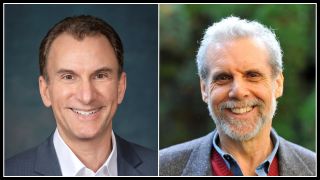Emotional Intelligence
How to Tackle Climate Change with Emotional Intelligence
An Interview with Daniel Goleman about his new book and more.
Posted January 11, 2024 Reviewed by Gary Drevitch
Key points
- Emotiional intelligence skills help us manage our triggers so we can be calm and effective.
- Collaborating, and building the teams needed to make change, also requires skills in emotional intelligence.
- Combining data with stories is a highly effective way to communicate and connect with others.

Part 2 of a two-part series.
Daniel Goleman, a recognized expert on emotional intelligence (EI), published his fifth book on this topic in January 2024. It's titled "Optimal" and in this interview, you'll hear directly from Goleman about his new offering, how it can help us tackle big issues like climate change, and more. (The interview was edited for clarity and brevity.)
EI and Big Issues: Climate Change, Poverty, and More
David Fessell: Your book is about so much more than just individuals and work. It also touches on many pressing issues like climate change and poverty and political corruption. It makes a strong case that EI can help. Is that right?
Daniel Goleman: Well, I think EI can help, but it needs to work synergistically with other skills. So, for example, take climate change. This is a big challenge going forward. People have been indifferent to the climate consequences of our lifestyle and they're reluctant to change.
But I think that younger people might be much more motivated to make a purchase decision based on what product is less harmful or more beneficial for the environment. This means that in the future there's market share to be won by being clever and being inventive about new ways of doing things which lessen your footprint. I think it's going to take emotional intelligence to get people working together.
I think it will also take cognitive ability, and some AI as well as creativity, and a sense of purpose which is highly motivating. Also, an understanding of systems. I think all of those will be necessary going forward. Because when you talk about poverty, or you talk about climate change, you really are looking at the impact of large systems. And if you're going to leverage those for the better, you need to understand where the incentives are in that system.
DF: Having EI skills not only helps us manage our triggers when tough issues come up, it also helps us collaborate and form the teams that you're talking about.
Daniel Goleman: All of that will be essential going into the future.
Early Critics of EI and How It Has Evolved
DF: You mentioned the success of emotional intelligence, and when there is a new concept, like EI was in the 1990s, there's also going to be critics. Some of the critics have talked about how EI is lacking in empiric validity and reproducibility. How would you respond?
Daniel Goleman: Well, those criticisms were valid in the early years of emotional intelligence. EI is a very young concept. IQ has been around for more than 100 years and there is lots of data about it. IQ is a very strong predictor of how well you'll do in school and how well you'll do in a lot of fields.
But interestingly, IQ doesn't predict how successful you'll be once you're in that field. For example, there was a study done on engineers at a global manufacturing company. They were asked to evaluate each other on how effective they were as engineers, and it turned out there was zero correlation between effectiveness and IQ because everybody who's an engineer is already smart.
But the difference was in emotional intelligence—a very high correlation. You can be really smart, and not emotionally intelligent. And you're not going be that effective in your job. So, EI matters more over the course of one’s career.
An Empiric Basis for EI
Daniel Goleman: In 1995, when my first EI book came out, a group of us had founded what we call the Consortium for Research on Emotional Intelligence, particularly in organizations, because we felt there wasn't enough data. So, the early critiques that it was not well founded, I think, were absolutely right.
In writing this book, Cary Cherniss and I, who were the co-chairs of that consortium, have harvested decades of data including excellent meta-analysis of aggregates of many studies in making the case that EI does work.
The Value of Stories for Connecting and Communicating
DF: In addition to the data that you mentioned, the book also includes many stories. Can you talk about how, and why, stories are helpful when writing about psychology?
Daniel Goleman: You know, it's funny. I've been giving talks for a long time all around the world, and people seem to remember and learn more from a story than from the data. Humans, since time immemorial, have gathered to hear stories. We call them myths and legends, but even today they are still very powerful ways to communicate.
DF: Yes, stories are sticky. They stay with us in our heads and in our hearts.
Being in the Public Eye and Dealing with Critics
DF: Criticism naturally comes when you're in the public eye, as you've been for many years, and when you put forth a new concept like EI. How do you handle the critics?
Daniel Goleman: Well, I tend to not pay much attention to that. I happen to be a friend of George Lucas, the filmmaker. George always managed to leave the country when his films came out, because he couldn't stand reading the criticism. And I adopted the same attitude which is: People have their own opinions. Let them. I do what I do. And I'm going to keep doing it. I don't feel that I need to speak to any given critique.
DF: Optimal is your eighteenth book. Do you have more in mind?
Daniel Goleman: Yes, I do, but not necessarily about emotional intelligence. I also have an online learning program and I think that's a very important part of my legacy in this area because it's actionable. It helps people, along with my other books. My future books may be on other topics.
David Fessell: Can you share something about yourself that your readers may not know?
Daniel Goleman: I'm an avid meditator, and I have been since my college days.
References
Goleman D, and Cherniss C. Optimal: How to Sustain Personal and Organizational Excellence Every Day. HarperCollins Publishers, New York, 2024.




